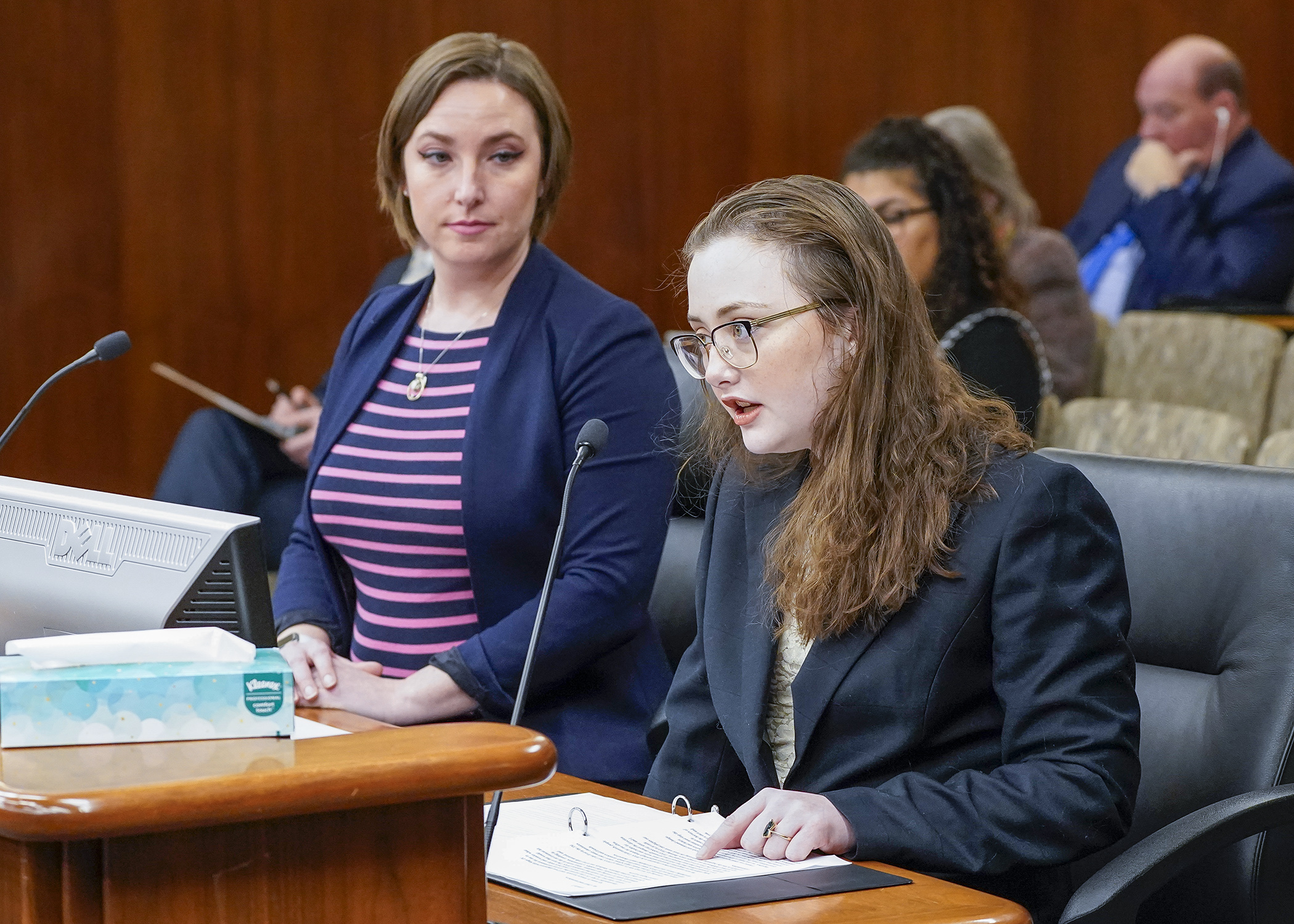Lawmakers move to block ‘forever chemicals’ from kids products

PFAS are sometimes called “forever chemicals” because they break down so slowly and can build up in the environment.
Perfluoroalkyl and polyfluoroalkyl substances are present in a large range of products, some appealing to parents with small children because they’re stain-resistant or waterproof, but PFAS are also associated with adverse health effects.
The House Environment and Natural Resources Finance and Policy Committee approved a bill Tuesday to prohibit the use of PFAS in products for infants and children and sent it to the House Commerce Finance and Policy Committee.
Sponsored by Rep. Carlie Kotyza-Witthuhn (DFL-Eden Prairie), HF552 would prohibit the manufacture and sale of products containing PFAS aimed at children under age 12. This includes bassinets, booster seats, changing pads, car seats, crib mattresses, nursing pads, playpens, strollers and high chairs.
“We’ve been unknowingly keeping these products in our homes,” said Kotyza-Witthuhn, who sponsored a similar bill last year.
Electronics, adult mattresses and medical devices would be excluded. The sale of used items would be allowed.
Amara Strande, who was diagnosed with a rare and excruciatingly painful liver cancer five years ago at age 15 said she’s wondered if the toys she played with carried toxins that attacked her DNA.
“Unfortunately, people being unknowingly exposed to toxic chemicals happens far too often,” Strande said. “Banning PFAS in juvenile products is just the beginning of addressing the toxic waste that plagues our community.”
Studies of laboratory animals given large amounts of PFAS have found that some may affect growth and development, reproduction, thyroid function, the immune system, and the liver. Long-term health effects for humans from low exposure are uncertain, according to the Centers for Disease Control and Prevention.
Language in the bill could more closely mirror that in other Minnesota statutes banning substances, suggested Tony Kwilas, environmental policy director for the Minnesota Chamber of Commerce, specifically adding the words “intentional use.”
He also suggested allowing retailers time to sell off products they may still hold if the manufacturing ban takes effect.
Rep. Heather Edelson (DFL-Edina) is strongly opposed to adding a sell-through window. “Maybe there’s something we can do as a state – buying those products and disposing of them,” she said.
Banning PFAS has broad effects, and lawmakers must be careful in how they accomplish a shared goal, said Rep. Josh Heintzeman (R-Nisswa).
“I’d like to see something happen nationally, and I shared that concern last year,” he said.
Related Articles
Search Session Daily
Advanced Search OptionsPriority Dailies
Speaker Emerita Melissa Hortman, husband killed in attack
By HPIS Staff House Speaker Emerita Melissa Hortman (DFL-Brooklyn Park) and her husband, Mark, were fatally shot in their home early Saturday morning.
Gov. Tim Walz announced the news dur...
House Speaker Emerita Melissa Hortman (DFL-Brooklyn Park) and her husband, Mark, were fatally shot in their home early Saturday morning.
Gov. Tim Walz announced the news dur...
Lawmakers deliver budget bills to governor's desk in one-day special session
By Mike Cook About that talk of needing all 21 hours left in a legislative day to complete a special session?
House members were more than up to the challenge Monday. Beginning at 10 a.m...
About that talk of needing all 21 hours left in a legislative day to complete a special session?
House members were more than up to the challenge Monday. Beginning at 10 a.m...